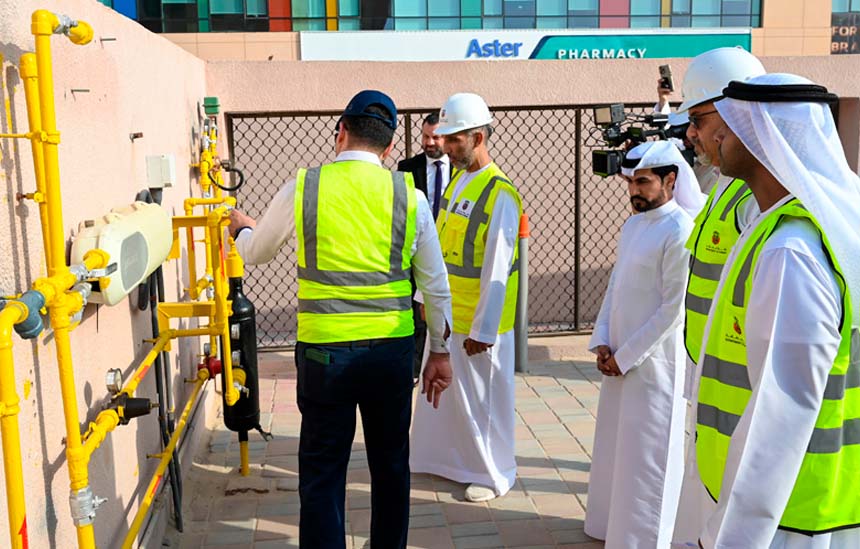The Petroleum Products Trading Regulatory Committee continues its efforts to enhance security and safety measures in the Emirate of Abu Dhabi, ensuring that operators and stakeholders adhere to federal and local regulations and decisions.
In this regard, His Excellency Dr. Saif Saeed Al Qubaisi, Acting Director General of Regulatory Affairs at the Department of Energy, stated: “The Committee aims to enable the entities involved in the trading of petroleum products in the Emirate of Abu Dhabi to effectively collaborate in implementing the regulatory framework for these activities in accordance with the relevant issued legislation. This includes Federal Law No. (14) of 2017 and its executive regulations issued by the Cabinet Resolution No. (35) of 2019, in addition to Law No. (5) of 2023 concerning the regulation of these activities in the Emirate of Abu Dhabi.”
Dr. Al Qubaisi added: “The Committee regulates these activities in Abu Dhabi according to best international practices. It studies all related issues and topics and submits its proposals to the Department of Energy (DoE), particularly concerning the assessment of activities involving the trading of these products, which include hydrocarbon gas and all petroleum derivatives except crude oil. The Committee also proposes programs, initiatives, and projects related to the regulation of their trading those products.”
He continued: “In line with the Committee’s charter, four working groups have emerged under the supervision of the DoE’s technical sector. Each working group includes representatives from various member entities of the Committee. The tasks of each group are respectively focused on permits, inspection and enforcement, legislation and legal affairs, and data and information technology.”
Moreover, Dr. Al Qubaisi pointed out that the Committee studies and analyses periodic reports on the trading of these products and their performance indicators and provides appropriate recommendations. These reports include issued trading permits, compliance rates of public entities in this sector, violations, fines, and related necessary procedures to monitor the adherence of establishments and individuals to licenses, permits, and related conditions and standards.
Additionally, Dr. Al Qubaisi emphasized that the regulations governing the trading of petroleum products cover a range of activities and processes, from the import of these products into the country or their manufacturing to their storage, packaging, transportation, marketing, distribution, offering for sale, selling, purchasing, or supplying them to others.
Al Qubaisi noted that the Committee will launch a platform for consultation and communication with clients and companies operating in the petroleum products sector in the Emirate of Abu Dhabi to facilitate exchanging technical expertise and understand the needs of stakeholders. The DoE will develop the requirements, procedures, and working mechanism for this platform.
Al Qubaisi explained that the Committee reviews the outcomes of studies and initiatives conducted by relevant federal and local entities. This includes results from efforts to combat and address the illegal trading of these products and their gray market trade. It also involves the development of competency standards for professionals in the petroleum product trading sector, the requirements for storage facilities and warehouses of gas cylinder distributors, and the joint inspection campaign program among members, along with reviewing circulars issued regarding the trading of these products.

